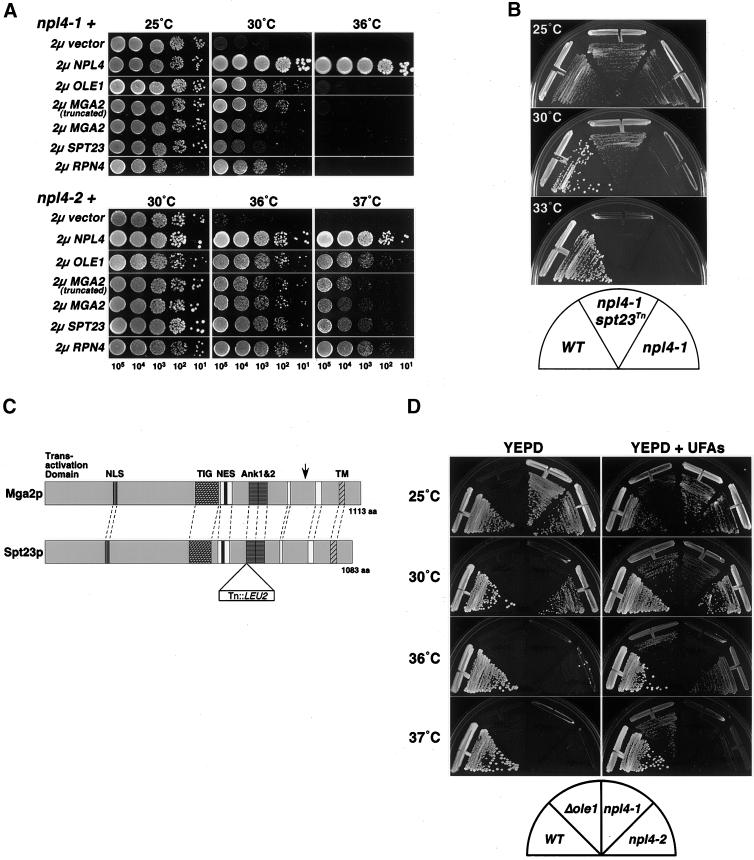Figure 4.
Yeast npl4 mutants are rescued by regulators of the UFA pathway and the proteasome. (A) Suppression of npl4-1 and npl4-2 temperature sensitivity by high-copy expression of OLE1, SPT23, MGA2, and RPN4. npl4-1 (PSY2340, top) and npl4-2 (PSY2341, bottom) strains transformed with either empty vector, or 2 μ vectors containing NPL4, OLE1, MGA2(aa1-914), MGA2, SPT23, or RPN4 were serially diluted onto YEPD media. The number of cells spotted in each dilution is indicated at the bottom. Plates were incubated at the indicated temperatures for 24–48 h. (B) Temperature sensitivity of a npl4-1 strain is extragenically suppressed by a transposon insertion allele of SPT23. Growth of wild-type (WT; FY23), npl4-1 (PSY2373), and npl4-1 SPT23:: Tn3:: LEU2 (PSY2377) strains on Leu− plates at the indicated temperatures. The FY23 and PSY2373 strains were transformed with an empty LEU2 vector to allow growth on Leu− dropout plates. (C) Schematic of the S. cerevisiae Mga2p and Spt23p proteins. These partially redundant factors are 38% identical and 54% similar. Sequence features include a putative basic nuclear localization signal (NLS), a putative leucine-rich nuclear export signal (NES), and two ankyrin repeats. The TIG domain is an Ig-like fold domain found in cell surface receptors and intracellular transcription factors including NF-κB. The C-terminal transmembrane domain (TM) is indicated. Blocks of strong amino acid conservation without assigned or predicted function are indicated by white boxes. The site of truncation in the isolated MGA2 high-copy suppressor clone (pPS2019) is indicated by an arrow in the Mga2p schematic. The site of transposon (Tn::LEU2) insertion in the npl4-1 extragenic suppressor allele of SPT23 (PSY2377) is indicated in the Spt23p schematic. (D) Temperature sensitivity of yeast npl4 mutants is partially rescued by supplementing growth media with UFAs. Wild-type (WT), ole1Δ, npl4-1, and npl4-2 strains were struck onto YEPD plates unsupplemented (left) or supplemented (right) with 0.5 mM UFAs (0.25 mM palmitoleic acid [16:1], 0.25 mM oleic acid [18:1], 1% Tergitol). Plates were incubated at the indicated temperatures for 48 h.

